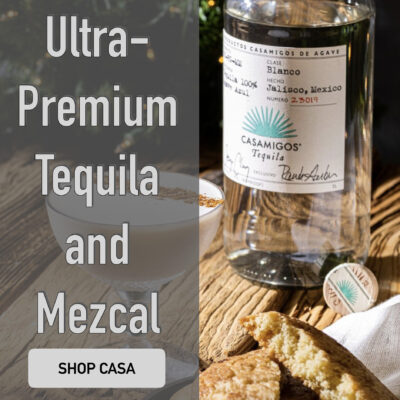
When you make purchases through our links we may earn a small commission.

Photo Credit: instagram.com/casamigos
Put It On Your Wall: CanvasOnDemand.com
Join us on Facebook @HeyBartender – get all our latests
posts and exclusive offers from the best brands!
Mezcal, the smoky and complex cousin of tequila, has been gaining popularity in the world of mixology for its distinctive flavors and artisanal production. Whether you’re a seasoned cocktail enthusiast or a curious newcomer, the variety of mezcal cocktails available is sure to captivate your palate. Let’s embark on a journey through the rich and diverse landscape of mezcal-based concoctions, from classic favorites to contemporary delights.
Latest Posts
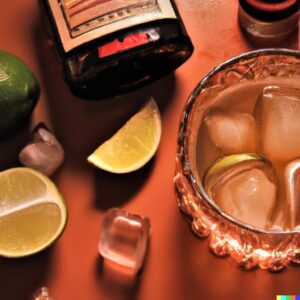
Exploring the Mezcal Amargo-Vallet Cocktail: A Spirited Journey
Indulge in the rich heritage and contemporary allure of the Amargo-Vallet cocktail, a mezcal-based marvel that captivates with its smoky depth and bittersweet complexity. Explore its history, ingredients, preparation, and variations, and discover why pairing it with Casamigos mezcal is an unforgettable experience.
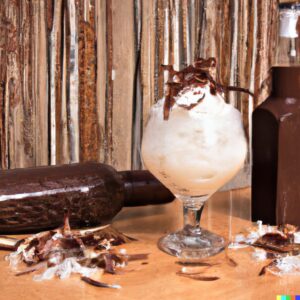
Crafting the Perfect Mezcal Almond Joy: A Delightful Twist on Tradition
Indulge in the rich and smoky allure of the Mezcal Almond Joy, a modern twist on tradition. Uncover the history of mezcal, explore the unique blend of ingredients, and master the art of crafting this delightful cocktail. Elevate your mixology experience with variations and alternatives that add flair to this mezcal-infused creation. A sip of the Mezcal Almond Joy is a journey into the world of innovative flavors, combining the essence of Mexican heritage with contemporary mixology.
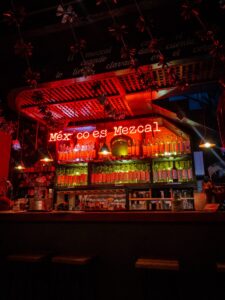
The Paloma de Mezcal: A Spirited Journey through Mexico’s Iconic Cocktail
Discover the allure of the Paloma de Mezcal, a Mexican classic blending smoky mezcal, grapefruit soda, and zesty lime. Uncover the cocktail’s history, essential ingredients, and barware, while exploring classic variations and alternative mezcal-infused creations in this spirited journey through Mexico’s iconic drink culture.

Exploring the Mezcal Amargo-Vallet Cocktail: A Spirited Journey
Indulge in the rich heritage and contemporary allure of the Amargo-Vallet cocktail, a mezcal-based marvel that captivates with its smoky depth and bittersweet complexity. Explore its history, ingredients, preparation, and variations, and discover why pairing it with Casamigos mezcal is an unforgettable experience.

Crafting the Perfect Mezcal Almond Joy: A Delightful Twist on Tradition
Indulge in the rich and smoky allure of the Mezcal Almond Joy, a modern twist on tradition. Uncover the history of mezcal, explore the unique blend of ingredients, and master the art of crafting this delightful cocktail. Elevate your mixology experience with variations and alternatives that add flair to this mezcal-infused creation. A sip of the Mezcal Almond Joy is a journey into the world of innovative flavors, combining the essence of Mexican heritage with contemporary mixology.

The Paloma de Mezcal: A Spirited Journey through Mexico’s Iconic Cocktail
Discover the allure of the Paloma de Mezcal, a Mexican classic blending smoky mezcal, grapefruit soda, and zesty lime. Uncover the cocktail’s history, essential ingredients, and barware, while exploring classic variations and alternative mezcal-infused creations in this spirited journey through Mexico’s iconic drink culture.
The Classics
Mezcal Margarita
A smoky twist on the classic, the Mezcal Margarita swaps tequila for mezcal, adding depth and complexity to this timeless favorite.
Oaxaca Old Fashioned
This sophisticated cocktail combines mezcal with muddled sugar, Angostura bitters, and a citrus twist for a smoky take on the traditional Old Fashioned.
Paloma de Mezcal
Refreshing and slightly effervescent, the Paloma de Mezcal blends mezcal with grapefruit soda and a splash of lime, creating a delightful citrusy concoction.
Contemporary Delights
Smoky Ginger
Introducing a touch of spice, the Smoky Ginger combines mezcal with ginger beer and a splash of lime, offering a refreshing and smoky kick.
Mezcal Mule
A south-of-the-border twist on the classic Moscow Mule, the Mezcal Mule pairs mezcal with ginger beer and lime, delivering a perfect balance of smokiness and zing.
Mezcal Mojito
Take a tropical journey with the Mezcal Mojito, featuring mezcal, mint, lime, and a hint of sweetness for a refreshing and aromatic experience.
Exploring the Full Spectrum
As you venture into the world of mezcal cocktails, consider trying the earthy notes of the Mezcal Negroni, the fruity allure of the Mezcal Pineapple Express, or the herbal complexity of the Mezcal Basil Smash. The possibilities are as diverse as the agave plants from which mezcal is derived.
The Complete List
- Almond Joy
- Amargo-Vallet
- Bandera
- Bee’s Knees with Mezcal
- Bitter Paloma
- Bloody Maria
- Campfire Sour
- Chili Mango Mezcalita
- Cilantro Paloma
- Coco Smoke
- Doctor Funk
- El Diablo
- El Presidente
- Firme Paloma
- Grapefruit Sage Paloma
- Green Thumb
- Hibiscus Mezcal Margarita
- Jungle Bird
- La Diabla
- La Palabra
- Lavender Mezcal Sour
- Mango Mezcalita
- Mezcal Bramble
- Mezcal Cider Punch
- Mezcal Collins
- Mezcal Espresso Martini
- Mezcal Julep
- Mezcal Mai Tai
- Mezcal Margarita
- Mezcal Martini
- Mezcal Mule
- Mezcal Negroni
- Mezcal Pina Colada
- Mezcal Sour
- Mezcal Spritz
- Mezcal Sunset
- Mezcal Vesper
- Mezcal Watermelon Punch
- Oaxaca Old Fashioned
- Paloma de Mezcal
- Pineapple Mezcalita
- Prickly Pear Mezcal Margarita
- Raspberry Mezcal Mule
- Rosita
- Sandia Smash
- Smoky Ginger
- Smoking Gun
- Spicy Mango Mezcal Margarita
- The Smoky Rose
- Tommy’s Mezcal Margarita
- Tropical Mezcal Punch
Last Call
Whether you prefer the boldness of a Mezcal Margarita or the adventurous spirit of a Mezcal Mule, the world of mezcal cocktails offers a diverse range of flavors and experiences. Experiment with different recipes, explore unique combinations, and raise a toast to the captivating and ever-evolving world of mezcal mixology. Salud!
You’ll get more articles like this – and our favorite promotional offers delivered straight to your inbox.
By submitting this form you agree to our terms and conditions. You can unsubscribe at any time.

Crafting the Perfect Mezcal Margarita: A Smoky Twist on a Classic

Sipping Tradition: The Mezcal Mule and its Spirited History



GFYG: MarieMur – Sexy Lingerie Try On Haul!

ONEONE Swimwear Try-On Haul by Bri Lauren



Exploring the Elixir of Mexico: The 15 Best Mezcals

Exploring the Mezcal Amargo-Vallet Cocktail: A Spirited Journey


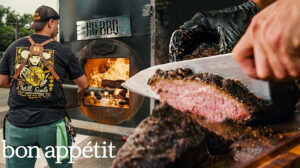
BEST BBQ: The Most Exciting BBQ Joint in Texas is Egyptian

The Timeless Elegance of the Old Fashioned Cocktail

12 Charcuterie Ideas to Elevate Your Rosé Game

Sipping Sunshine: The Lavender Lemonade Gin Fizz

Sipping Sunshine: Unveiling the Delightful World of Banana Rum Punch

The Timeless Elegance of Gin Martinis: A Comprehensive Guide


Video: Naked Eggs Benedict | Food Wishes



